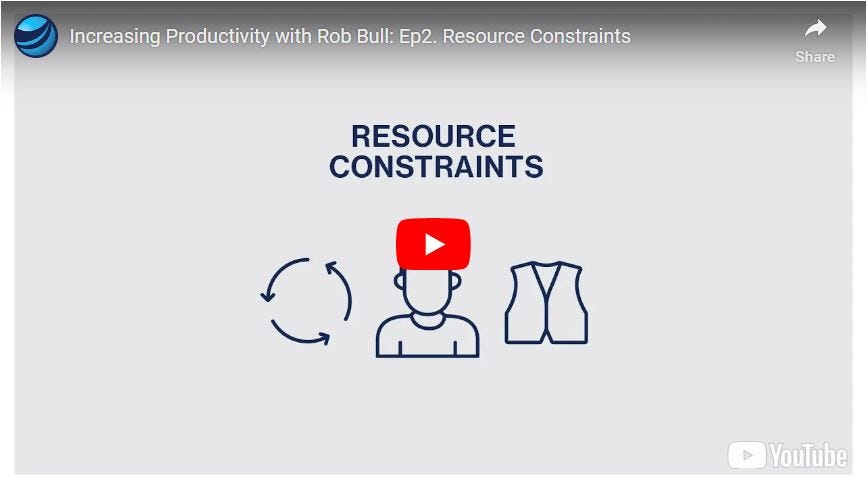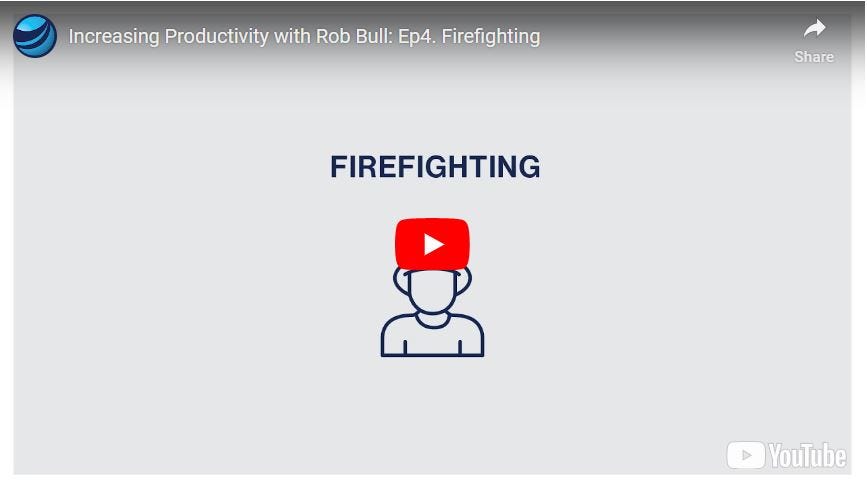Increasing Productivity With Rob Bull: EP3. 'Nothing Gets Out On Time'
This video is about a common production challenge, which is jobs not getting out on time.
So, Rob, what are some of the things preventing work getting completed on time?
Yeah, good question Andy. Always boil it down to a couple of factors for engineering teams and workshop teams. The first one I often see is around communication and setting the job expectations. And that could be that the team members don’t even know what the deadline is, or what the expectations are or even what they are building, so having the plans and setting those expectations up front can be a real big problem. Or the lack of that as well.
The second one is really based around quality. They kind of accept quality issues always crop up so they are always accepting there needs to be some form of re-work so that really impacts all the jobs getting done and getting out on time.
The next really big challenge is the materials and waiting for parts and materials is a big problem. Particularly if they’re a fast growing business and they’ve been ok with how they were working before and they’re able to get away with sort of small glitches in the system but as they’re going faster and bigger, and bigger orders, those issues really start to compound and slow down the team because they might not have the right materials or the right tools when they need it.
Then the last one is the boss still has contact with lots of contacts and he comes running into the workshop with that urgent order. So that disrupts the whole flow, so everyone has to drop the tools, do that job, and then get back up to speed on the old job. In fact it just slows down the whole engine of the business, him coming in with those urgent jobs. So it’s getting all of that under control.
Yeah, that’s great Rob. So what are some tips engineers could use to overcome this challenge?
One of the tools I often use is having one of those visual boards, those job boards. Nice and analogue, big whiteboard up on the wall. And you’ll often see those around engineering firms, but it’s about tweaking those so everyone has absolute clarity on what the expectations are, what the deadline is, maybe what the requirements are for each particular job. But that’s also supported with daily stand-up meetings, tool-box meetings, huddles, they all come in different names, and they’re really quick. They’re 10 minutes around the board setting those daily jobs and objectives. ‘Ok for that to be done on time, what’s our goal for today to keep that on track.’ So it’s around communication, it’s helping have clear transparent communication across the whole team.
The next one is really looking at how the whole job flows. When I talk about flow, it’s about having the right materials and looking at the system so when they’re doing a particular part of the build or are on a job they’ve got the planning and organisation of equipment and materials so everything flows and everything’s just on time to meet the ultimate deadline for the customer.
The last one really is getting teams really focusing on quality and not accepting re-work. So it’s problem solving that re-work, understanding why it happens and putting solutions in place so we can reduce that over time, and that might be taking 12 to 18 months to achieve some really good results. But ultimately that can save 25-30% in productivity. So when you’re thinking about getting jobs out on time, when you’ve got 25-30% more time because you’re not doing all that re-work, it’s a huge payback on that work done over a year or so.
Yeah, that’s great Rob. So if you’re feeling production isn’t moving fast enough and you’re struggling to get things out on time:
- Look to increase quality and reduce re-work.
- Focus on job planning and how workflow can be continually improved.
- Keep workers accountable with visual job boards and short, daily stand-up huddle meetings.
Check out our next video where we discuss how to get out of firefighting mode and back into growth mode: EP4. Firefighting
 Need assistance?
Need assistance?







